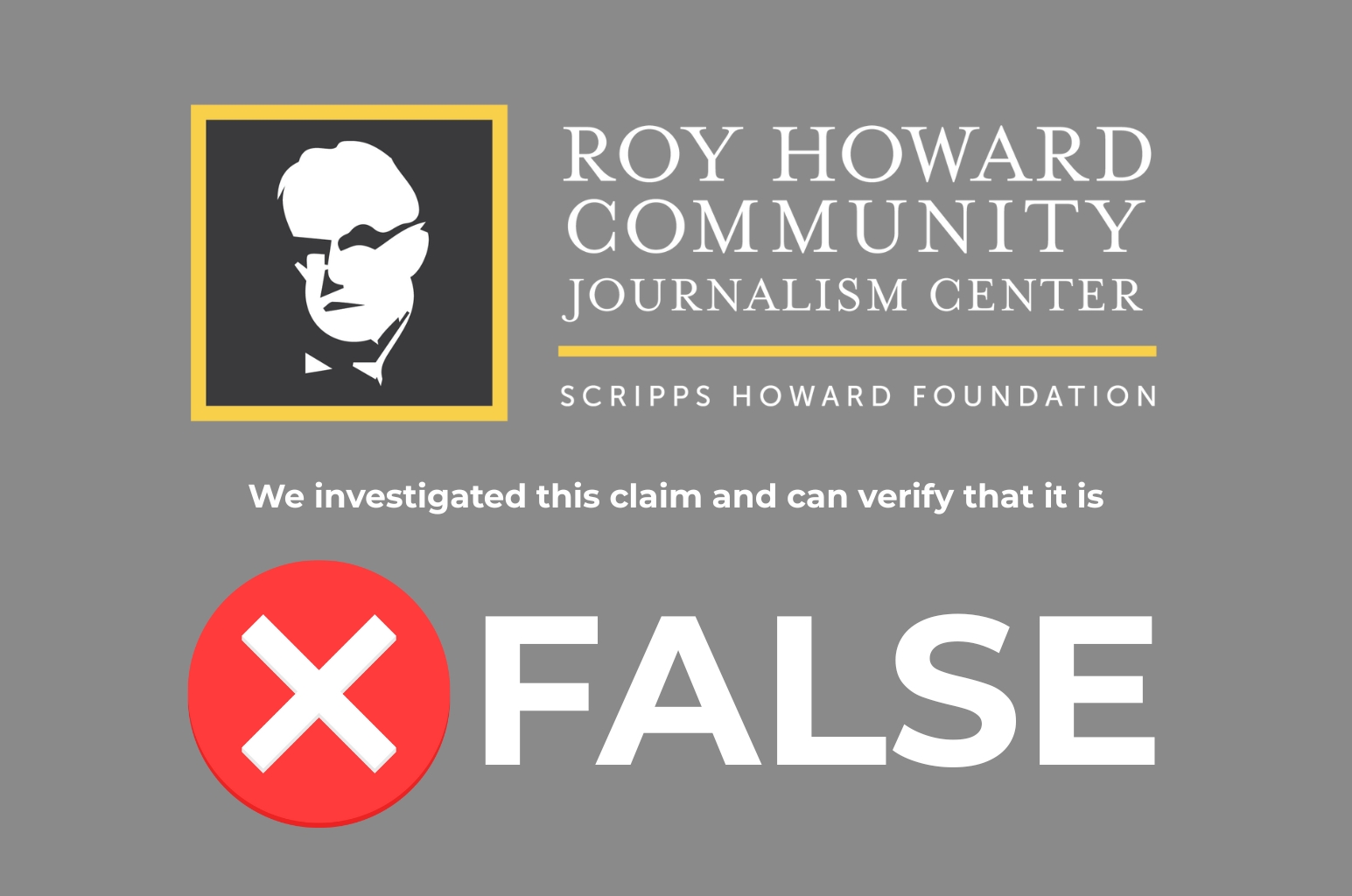The Roy Howard Community Journalism Center’s “What Is True?” team identified a social media claim suggesting Mississippi homeowners can trap raccoons on their property at any time. That claim is false.

Raccoons may only be trapped from Nov. 1 to March 15. Additional rules govern licensing, trap types and bait use. While trapping is legal under specific conditions, prevention methods like sealing entry points and removing attractants are often safer and more effective.
Read the full fact-check below for details on what Mississippi law allows:
You can’t trap raccoons in Mississippi just because they’re tearing through your trash. Even on your own property, state law places firm limits on when, where and how you can trap them.
The “What Is True?” team at the Roy Howard Community Journalism Center identified this claim during routine monitoring of social media. In neighborhood groups and comment threads, some users claimed Mississippi homeowners can trap raccoons on their land at any time. That claim is false.
Raccoons are not classified as nuisance animals in Mississippi. Instead, they’re designated as furbearers, which places them under specific seasonal regulations. State law only allows raccoons to be trapped during the furbearer trapping season, which runs from Nov. 1 through March 15 each year. Trapping raccoons outside of this window — even on land you own — is illegal.
Whether you need a license depends on where the trapping takes place. If you’re trapping on land deeded in your name, a license isn’t required. However, if you intend to trap on land you don’t own, a valid trapping license is required.
A resident trapping license costs $25. For non-residents, the cost is $205. These licenses can be purchased online or anywhere hunting and fishing licenses are sold.
There are also restrictions on how raccoons may be trapped. The use of recorded or electronically amplified animal or bird calls is illegal when trapping furbearers. Liquid scent is permitted under current regulations.
Lure or bait is allowed, but the amount must not exceed 2.5 cubic inches — roughly the volume of a regulation golf ball — and must be placed within 20 feet of the trap. All lure used within that range must be covered and not visible from above.
However, different rules apply when using a live cage-type trap. In traps that do not exceed 42 inches in length, 15 inches in width and 20 inches in height, there are no restrictions on the amount or visibility of lure used.
Trap types recommended by the Mississippi Department of Wildlife, Fisheries, and Parks include foothold traps, cable grips and body snares.
While trapping is legal under specific conditions, preventing raccoons from becoming a problem in the first place is often more effective — and safer. Removing attractants and securing access points can help discourage raccoons from hanging around your property:
— Begin by sealing any openings into your attic, roofline or crawl space.
— Tree limbs that touch your house should be trimmed back to keep raccoons from reaching the roof.
— Adding chimney caps can help keep animals from nesting inside.
— Avoid leaving pet food outside; it can attract raccoons and other unwanted guests.
— If you keep poultry, bring the birds in at night and make sure the coop or enclosure is fully secured. Raccoons have been known to reach through wire fencing and grab chickens.
— Bird feeders often draw raccoons after dark and may need to be taken down if they’re being disturbed.
— Store your garbage in sturdy bins with lockable or wildlife-resistant lids.
Finally, never attempt to handle a raccoon — whether alive or dead. Raccoons can transmit rabies to humans and pets and can also spread distemper to unvaccinated animals. If you see a raccoon behaving unusually — acting lethargic, disoriented, aggressive or sleeping in exposed areas during the day — contact wildlife officials.
Mississippi law does allow homeowners to trap raccoons, but only under very specific conditions tied to season, land ownership and trapping method. The claim you can trap them at any time, without restrictions, is not supported by state law.
This report was produced by the Roy Howard Community Journalism Center as part of its “What Is True?” fact-checking service. The center’s researchers investigate local claims to help the public separate fact from fiction. To learn more or submit a claim for review, visit rhcjcnews.com/witreq.










